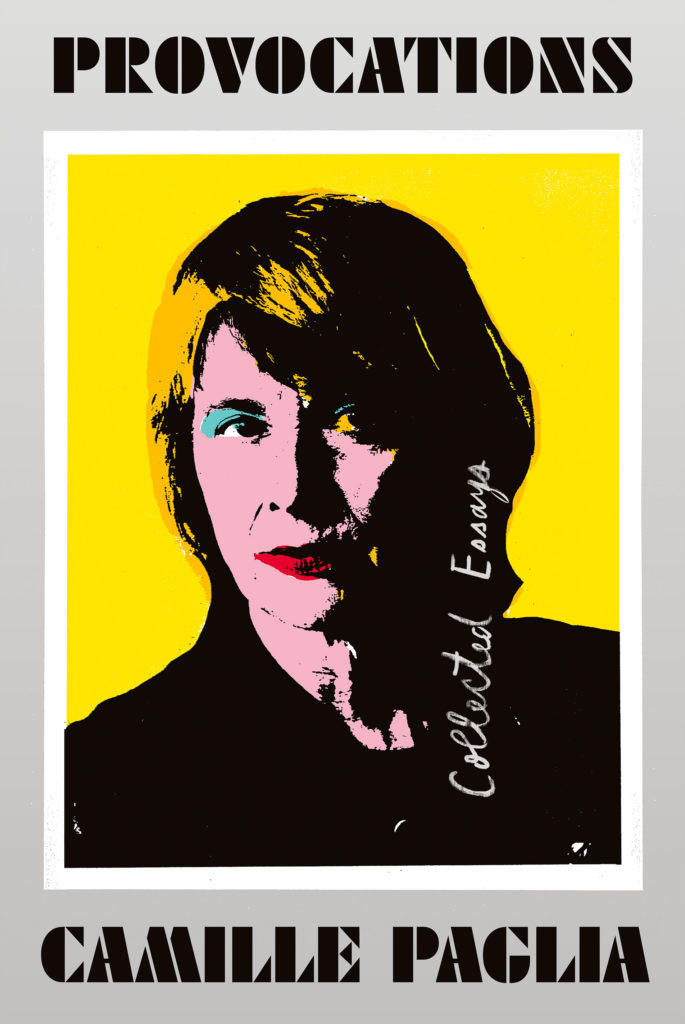Review of Provocations by Camille Paglia
I first heard Camille Paglia in a conversation between her and Jordan Peterson. At first, I did not register too much interest. She seemed intelligent and engaging. Later, I saw that historian Carl Trueman interviewed Paglia. This caught my attention. I respect Trueman. So if he found it worthwhile to interview Paglia, I should at least take a deeper look.
So I purchased Free Women, Free Men: Sex, Gender, Feminism, a work of collected essays. And while I cannot say her arguments convinced me in every case, I enjoyed her fast, punchy writing style. Paglia also showed courage because she stands against the academic mainstream of feminism and gender studies.
And yet as a gay trans person, Paglia represents something of an enigma. She defines gender according to biology. She defends some traditional norms of masculinity. She promotes the centrality of religion in university curricula. And her feminism could fit into the world of both traditional liberalism and even conservativism.
Yet she is not a trojan horse conservative. She ends up being a third thing, a libertarian that relies heavily upon 1960’s ideas of multiculturalism and freedom. These ideas find some emphasis in her most recent work Provocations. The book Provocations collects her various articles and essays over two and half decades since her previous collection of writings which was published in 1994 (xi).
The wide-ranging topics of this collection include popular culture, film, sex, gender, women, literature, art, education, politics, and religion. As a religious person, I found it interesting that she can talk about John Calvin, Uhlich Zwingli, and Byzantine art. And she does so with surprising accuracy.
One unique aspect of her book is a media chronicle (581–681). The Chronicle cites her interaction with the media as well as providing some highlights. It seems like something for historical interest and perhaps for reference. It is part of the appendices. (I found it to be the most uninteresting part of the book—encouraging me mostly to scan through it. But as an appendix, that makes sense).
Paglia’s work fascinates me for a number of reasons. First, she challenges the idea of common sense. In the 1960s, she challenged common notions of gender by being a gay trans person. Yet now she transgresses the new common sense about gender, politics, and so on.
Her life demonstrates that sometimes common sense is simply community consensus. It shifts from era to era. And so common sense might not be common nor sensical but merely ideological consensus of a specific region at a specific time in history.
Second, her clear, witty, and bombastic prose exemplifies good, stylistic writing. To be clear, I am not saying everything she says is virtuous or good. I am saying that her writing style adds clarity and pleasure to the reading experience. She is a delight to read. And that is a rare treat in a world of mediocre and trite writing.
Finally, she argues her cases articulately (but not always convincingly). In short, read Paglia and Provocations to learn more about art, history, politics, and so on. She will teach, inform, and entertain readers.
Do not read naively. Especially if you are religious. Although Paglia promotes religion, she does so as an atheist. She sees religion as proffering universal symbols that have meaning. Well, yes. She’s right. But religion, particularly Christianity, claims to be true not just part of universal symbolism.
Paglia’s work does not ally with Christianity (or any religion). She simply tolerates religion and discerns universal symbols within it. In this sense, she overlaps a bit with Jordan Peterson, another cultural icon of our age.
Should you buy Provocations? Maybe. Paglia is a cultural presence. She also criticizes the world in which we live—helping us to understand it. As a stylist, she writes superbly. All these characteristics can make Provocations a compelling purchase.
At the same time, most people do not need to read Provocations. Buy it if you want to understand the culture, art, and politics better. Or at least, to enter into new conversations. If this does not interest you, it is probably not worth the purchase.
Disclaimer: the publisher provided me a review copy of this book.



